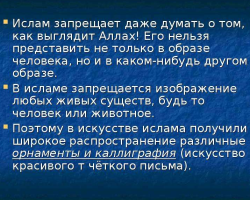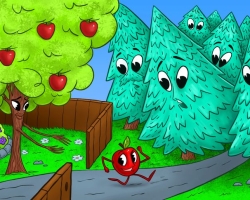In the Russian language, there are a lot of phraseological units, at the mention of which a certain picture arises in the brain by itself. But contrary to the recreated image, it remains quite far from the words and concepts originally embedded in one or another idiom.
Content
- The origin of the phraseology "stay with the nose"
- "Stay with the nose": short meaning of phraseological units
- The direct and figurative meaning of phraseology "stay with the nose"
- Explanation of the phraseology "stay with the nose" in one word
- What are the synonyms for phraseological units to “stay with the nose”?
- How to make a proposal with phraseology "stay with the nose"?
- Video: We say "stay with the nose" - what does this mean?
This is exactly what happened with the phraseological unit “stay with the nose”. Our imagination helpfully draws us some long nose and, as it turned out, completely in vain! Let's find out what the phraseological unit “stay with the nose” means?
The origin of the phraseology "stay with the nose"
- Finding out the first history of the phraseological unit “to stay with the nose”, we found out that in fact, the human nose does not have the slightest attitude to this expression. This is the case when the “nose” is not the nose that a person breathes, but offering.
- As it turned out, the bribery, which has been flourished in Russia since ancient times, has a centuries -old story. Noble nobles, to which both nobles and simple people had to be addressed, did not undertake to solve their problematic issues without certain gifts. Therefore, people have been attributed to the walls of the bureaucratic order everything that was the most valuable in their economy. Officials from ordinary people they took bribes with all kinds of products, a homespun canvas, wooden and clay dishes.
- The nobles were instructed to bribe officials with money. The issues that were versed in the order were of varying degrees of importance and complexity, and the value of the offering depended on this. Small officials at their expense existed, since their salary was very modest. And persons in high positions, huge bribes invested in the construction of palaces and maintaining a luxurious life in them.
- Before carrying the offering, the potential bribe giveer found out what exactly and how much this or that official takes. After all, what was good for one of them could be regarded as an insult.
- If suddenly the nobleman rejected the cash contribution or gift “in kind”, then the bribe taker had to expect a successful outcome of the case. And he had to, not a sunbathing, Return with your "nose" home.
- An unsuccessful matchmaking led to the same result. If the girlfriend’s parents did not like it, then they did not accept gifts from him and put him together with offers beyond the gate. And it was the unsuccessful groom to “stay with the nose”, i.e. with rejected gifts and without a bride.

"Stay with the nose": short meaning of phraseological units
- Phraseologism "stay with the nose" means that the man did not receive anything from what he had high hopes, failed in business, was deceived by someone or lost something very important for himself.
- As an example, one can cite a subordinate, trying in every possible way to please his boss in order to subsequently have any benefits from this. However, no tricks on his part led to a positive result, the boss remained unshakable and did not go to close contact with him. In this case, we can safely say that The flatterer and the span "stayed with the nose."
- “It will remain with the nose” and the unlucky boyfriend, whose chosen one rejects both his offerings and courtship.
- This phraseology could not do without a certain background with a negative shade that speaks of hierarchical ties: donor - gifted.
The direct and figurative meaning of phraseology "stay with the nose"
- If a person “stayed with a nose” - this means that he he did not receive what he wanted and what he dreamed about.
- He did not achieve the results he needed In some ways it is very important for him.
- Perhaps his troubles were empty or he was deceived by someone.

Explanation of the phraseology "stay with the nose" in one word
- The meaning of phraseology can be very briefly explained: tolerate failure, to be deceived, to lose, to get nothing, someone's hopes for obtaining the desired result did not materialize.
- That is, the “remaining one with the nose” remained without what he was counting on.
What are the synonyms for phraseological units to “stay with the nose”?
- You can choose a fairly large series of synonyms for phraseological units “to stay with the nose”, since failures and disappointments can comprehend absolutely every person in any business.
- Here are some of them, which are the most eloquent to describe such an unpleasant situation for a person: “To leave not saltly sip”, “knock on a closed door”, “water in a stupa”, “Sisyphus labor”.
- Not only losers are awarded such a definition. I must say that honest, but not very resourceful people in business, also fall under it, since they do not always achieve success in their field.
How to make a proposal with phraseology "stay with the nose"?
- Vasily tried to beautifully care for Olga - gave her flowers and gifts, drove to the cinema and cafe, however He stayed with his nose, the beauty married another.
- Oleg expected that it was he who would take the vacant place of the head of the department, but he stayed with his nose, the director took the person not from their company to this position.
Find out the origin of the following phraseological units:
- "Take with bare hands"
- "I give good"
- "Do not give a descent"
- "Rale your nose"
- "Hang your nose"
- "Give a cigarette
- "Without hind legs"
- "You can't spill water"
- "Handyman"
- "Without the king in the head"
- "Without a year week"
- "Sit in one's hands"
- "Every family has its black sheep"
- "Happy hours do not observe"
- "Give hands"







